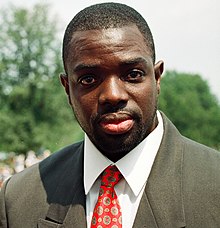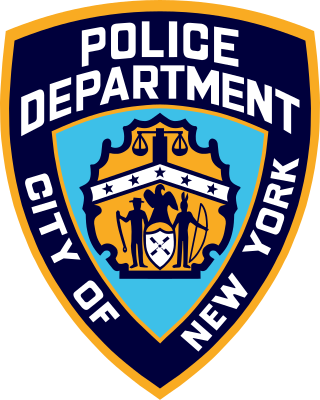
The New York City Police Department (NYPD), officially the City of New York Police Department, is the primary law enforcement agency within New York City. Established on May 23, 1845, the NYPD is the largest and one of the oldest, municipal police departments in the United States.

Francesco Vincent Serpico is an American retired New York Police Department detective, best known for whistleblowing on police corruption. In the late 1960s and early 1970s, he was a plainclothes police officer working in Brooklyn, the Bronx and Manhattan to expose vice racketeering. In 1967, he reported credible evidence of widespread police corruption, to no effect. In 1970, he contributed to a front-page story in The New York Times on widespread corruption in the NYPD, which drew national attention to the problem. Mayor John V. Lindsay appointed a five-member panel to investigate accusations of police corruption, which became the Knapp Commission.
The Raboteau massacre was an incident on April 22, 1994, in which military and paramilitary forces attacked the neighborhood of Raboteau Gonaïves, Haiti, the citizens of which had been participating in pro-Jean-Bertrand Aristide demonstrations. At least 23 residents were killed, though most groups estimated the true casualties to be higher.
The Mollen Commission is formally known as The City of New York Commission to Investigate Allegations of Police Corruption and the Anti-Corruption Procedures of the Police Department. Former judge Milton Mollen was appointed in June 1992 by then New York City mayor David N. Dinkins to investigate corruption in the New York City Police Department. Mollen's mandate was to examine and investigate "the nature and extent of corruption in the Department; evaluate the department's procedures for preventing and detecting that corruption; and recommend changes and improvements to those procedures".
Volpe is an Italian surname, meaning "fox". Notable people with the surname include:
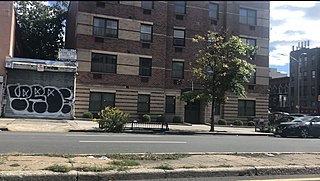
Crime rates in New York City have been recorded since at least the 1800s. The highest crime totals were recorded in the late 1980s and early 1990s as the crack epidemic surged, and then declined continuously since the mid-1990s and throughout the 2000s. As of 2023, New York City has significantly lower rates of gun violence than many other large cities. Its 2022 homicide rate of 6.0 per 100,000 residents compares favorably to the rate in the United States as a whole and to rates in much more violent cities such as St. Louis and New Orleans.
Michael James McAlary was an American journalist and columnist who worked at the New York Daily News for 12 years, beginning with the police beat. He won a Pulitzer Prize in 1998 for his columns exposing police brutality against Haitian immigrant Abner Louima.
Human rights in Greece are observed by various organizations. The country is a signatory to the European Convention on Human Rights, the Geneva Convention relating to the Status of Refugees and the United Nations Convention Against Torture. The Greek constitution also guarantees fundamental human rights to all Greek citizens.
Ousmane Zongo was a Burkinabé arts trader living in the United States who was shot and killed by Brian Conroy, a New York City Police Department officer during a warehouse raid on May 22, 2003. Zongo was not armed. Conroy did not receive any jail time but was convicted of criminally negligent homicide, received probation, and lost his job as a police officer.
Earl Caldwell is an American journalist. He documented the Black Panthers from the inside in 1969, and became embroiled in a landmark 1972 decision by the U.S. Supreme Court clarifying reporters' rights. The case started when the FBI pressured Caldwell unsuccessfully to be an informant against the Black Panther Party. He worked for The New York Times, the New York Daily News, The New York Amsterdam News and is on the radio in New York City. His career as a journalist spans more than four decades. He witnessed and chronicled some of the most important civil rights events from the 1960s onwards. He was the only reporter present when Martin Luther King Jr. was assassinated. Caldwell is a founding member of the steering committee of the Maynard Institute for Journalism Education, as well as the Washington-based Reporters Committee for Freedom of the Press. In 2009 he was inducted into the National Association of Black Journalists Hall of Fame.
There are cases, both documented and alleged, that involve the usage of torture by members of the United States government, military, law enforcement agencies, intelligence agencies, health care services, and other public organizations both in and out of the country.
On October 15, 2008, Michael Mineo was arrested and allegedly sodomized by New York City Police Department (NYPD) officers in the Prospect Park subway station in Flatbush, Brooklyn, New York. According to Mineo, the arresting police officers pinned him to the ground, while Richard Kern, one of the officers, pulled down Mineo's pants and sodomized him with a police baton. On December 9, 2008, the Brooklyn District Attorney indicted the three arresting officers and charged them with felonies. Kern was charged with aggravated sexual abuse in the first degree, assault in the first degree, and hindering prosecution. Two other officers — Andrew Morales and Alex Cruz — were charged with hindering prosecution and official misconduct. All three officers were tried and found not guilty of all charges.
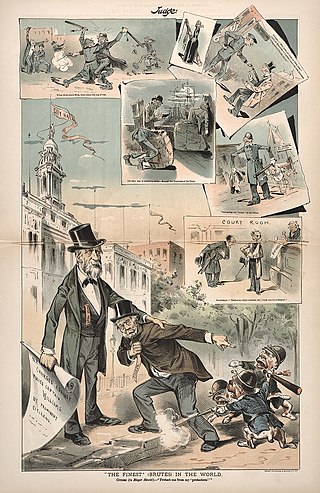
Throughout the history of the New York City Police Department, numerous instances of corruption, misconduct, and other allegations of such, have occurred. Over 12,000 cases have resulted in lawsuit settlements totaling over $400 million during a five-year period ending in 2014. In 2019, misconduct lawsuits cost the taxpayer $68,688,423, a 76 percent increase over the previous year, including about $10 million paid out to two exonerated individuals who had been falsely convicted and imprisoned.
Joseph Gray is a former New York City Police Department officer who killed four pedestrians, on August 4, 2001, while driving drunk in Brooklyn. The event "mushroomed into scandal" when it was discovered that other officers were drinking with Gray in a topless bar and earlier at a precinct parking lot before the incident. Five officers were suspended and five were transferred, including the precinct's commanding officer, executive officer and integrity control officer. The two officers who were on probation at the time were ultimately dismissed.
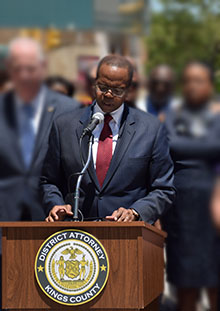
Kenneth P. Thompson was an American lawyer who served as the District Attorney of Kings County, New York, from 2014 until his death from cancer on October 9, 2016.

On September 29, 2013, motorist Alexian Lien was assaulted while driving on the Henry Hudson Parkway in New York City. Lien had gotten into an altercation with motorcyclists who were participating in a rally called Hollywood's Block Party. One of the bikers pulled in front of Lien and slowed dramatically. Lien said that he struck the bike from behind, stopped his vehicle, and was quickly surrounded by bikers, who began attacking his SUV. He testified that he feared for his life so he accelerated, running over several bikes and striking one of the bikers, paralyzing him. A chase ensued, ending in Lien being pulled from his vehicle and beaten. The media later reported that the involved bikers were members of a loose association of high-performance motorcycle enthusiasts known as "Hollywood Stuntz" who had previously been observed and filmed engaging in reckless driving and threatening motorists.
Akai Gurley, a 28-year-old black man, was fatally shot on November 20, 2014, in Brooklyn, New York City, United States, by a New York City Police Department officer. Two police officers, patrolling stairwells in the New York City Housing Authority (NYCHA)'s Louis H. Pink Houses in East New York, Brooklyn, entered a pitch-dark, unlit stairwell. Officer Peter Liang, 27, had his firearm drawn. Gurley and his girlfriend entered the seventh-floor stairwell, fourteen steps below them. Liang fired his weapon; the shot ricocheted off a wall and fatally struck Gurley in the chest. A jury convicted Liang of manslaughter, which a court later reduced to criminally negligent homicide.

On December 20, 2014, Ismaaiyl Abdullah Brinsley shot and killed Rafael Ramos and Wenjian Liu — two on-duty New York City Police Department (NYPD) officers — in the Bedford–Stuyvesant neighborhood of Brooklyn. Brinsley then fled into the New York City Subway, where he killed himself. Earlier in the day, before he killed Ramos and Liu, Brinsley had shot and wounded his ex-girlfriend Shaneka Thompson in Baltimore after initially pointing the gun at his own head.

Michael F. Dowd is a former New York City Police Department (NYPD) officer, drug distributor, and enforcer for the Dominican American Diaz criminal organization who was arrested in 1992 for running a drug ring out of Suffolk County, Long Island, New York. He is the subject of the 2014 documentary film The Seven Five directed by Tiller Russell and produced by Eli Holzman. The Tiller Russell TV documentary version, Precinct Seven Five (2015), aired on Film4 on June 19, 2020, and also featured interviews with Dowd's co-conspirator and "dirty cop" friend Kenneth "Kenny" Eurell, who eventually became a cooperating Federal witness and wore a wire, in order to further incriminate Dowd and help corroborate his own testimony in exchange for a lenient sentence at trial.
